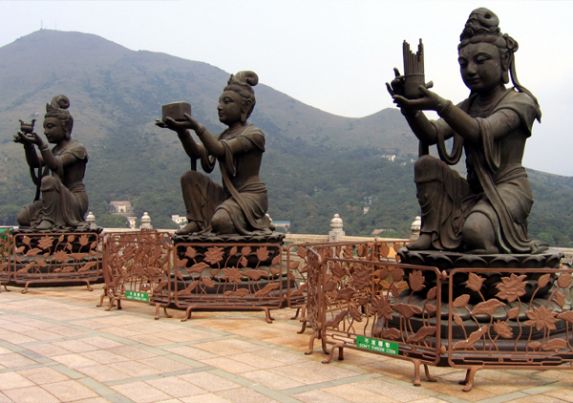Dealing With Three Kinds of Logic in China!
Few things are more upsetting and confusing to Western executives, diplomats and globe-circling politicians—especially Americans—than trying to deal with people whose attitudes and behavior are not logical in the American sense of the word.
Even when Americans are knowledgeable enough to know that other people are not steeped in American style epistemology and logic they typically behave as if those they are dealing with should understand and accept their logical, rational point of view, and react accordingly.
This, of course, is a form of cultural blindness—or a willfully predatory nature—that is responsible for much of our misunderstanding and mishandling of business and diplomatic relations with other nations.
This cultural factor can be especially challenging in China, where there are three forms of logic: traditional Chinese logic, Communist logic and Western logic; and it is common for all three of these forms of logic to be at play in the same situation.
Even being aware of the existence of these three forms of logic and knowing something about them individually does not always make it easy to deal with the Chinese—a fact that the Chinese themselves are fully aware of, readily admit and take full advantage of.
Until the latter part of the 20th century Chinese in general were not allowed to behave in purely Western style logical ways, despite the fact that they could think logically in the Western sense in virtually all matters when they had a choice. The problem was they seldom had a choice.
This situation is further complicated in present-day China by the fact that people who have been educated and trained to think and behave logically in Western terms will often behave in the traditional Chinese way by choice or in the Communist way because they have no choice.
The traditional Chinese way of thinking is what I call “fuzzy logic,” meaning that it is not the hard two-times-two-equals-four kind of thinking or straight-line thinking. It is “holistic” thinking, or thinking in circles, and is known in Chinese as buhe luoji de (buu-hay luu-oh-jee duh).
Since few Westerners are experienced in holistic or circular thinking, Chinese attitudes and behavior are often confusing to them. But fuzzy thinking (the term was actually invented by an American) is often far more powerful than “straight-line” thinking because it is takes in a lot more territory in terms of time, space and long-term results.
Westerners dealing with the Chinese should prepare themselves by learning how to react to—and use—fuzzy logic, which means learning how to look at things in a far more comprehensive context than they commonly do. One of the things that buhe luoji de entails is making it necessary to take substantially more time to negotiate relationships and keep them on track.
Without intending to sell Americans and other Westerners short, we often come across as being concerned only about quick financial gain. That traditionally has not been the way of most Chinese—and Westerners who understand why the Chinese put long-term relationships before profit on the priority scale are much more likely to be welcomed in China.












